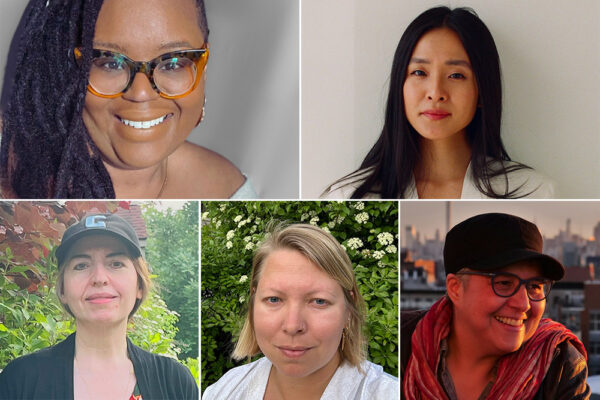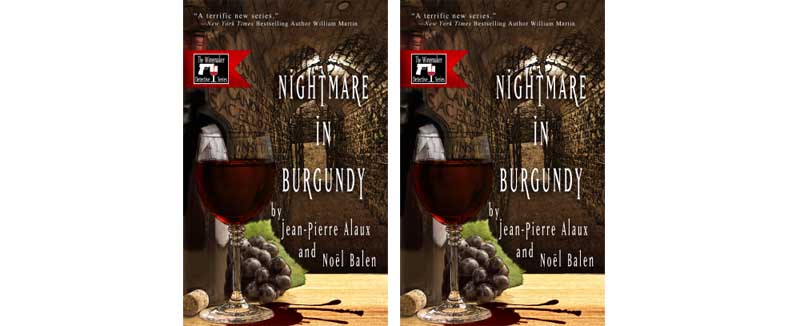The Zora Neale Hurston Writing Fellowship at Bard College, now in its third year, welcomes its cohort of five writers, Kay Bell, Theresa Lin, Vivian Rivas, Gwendolyn Shaw, and Dessie Zagorcheva.
The Hurston Fellows are in residence for three weeks from June 2 through June 22. During their residency, fellows are residing on Bard College at Simon’s Rock campus with housing and meals provided. Founded and directed by Visiting Associate Professor of Literature and American Studies Donna Ford Grover, the Hurston Fellowship enables writers from all disciplines who have not had the opportunity to develop their scholarship, and supports writers who are currently employed as adjuncts or visiting professors with terminal degrees.
“The Zora Neale Hurston Writing Fellowship at Bard College seeks women who have labored as adjuncts and have not yet published a major work,” said Grover. “Like the program’s namesake, the participants are independent scholars and writers without institutional support for their work. The Hurston Fellowship provides these women with the time and space to complete their projects.”
The Hurston Fellowship recognizes the particular challenges that BIPOC women encounter in the academy. Few BIPOC women are tenured or tenure track and most occupy precarious positions at their academic institutions. It is not the aim of the fellowship to increase the number of BIPOC women to the pool of tenure and tenure-track applicants. The program exists to assist these underrepresented voices into the publication of their works. During their residency, each Hurston Fellow spends their time working, writing, and researching independently on dedicated projects.
While in residence as a Hurston Fellow, Kay Bell will work on her poetic memoir, Where the Sun Splits Open, a story of self-discovery and healing after a devastating breakup. In poetry and prose, the book delves into the topic of generational trauma and how it shapes experiences and relationships.
Theresa Lin will spend her time during the Hurston Fellowship working on her first novel, which follows the story of a woman named Shau and the significant sacrifices she makes so that she may live on her own terms in 1950s Taiwan. An excerpt of the novel was awarded the De Alba Prize at Columbia University, where Theresa received an MFA.
As a Hurston Fellow, Vivian Rivas will be editing and writing her documentary, “Ashley,” which follows Vianney, a 42-year-old woman living in Guatemala City. Because of gang violence in her neighborhood, Vianney enrolled her daughter Ashley in Hogar Seguro, or “Safe Home,” a government-run group home which had promised that each girl would be protected, educated, and sheltered. On March 8, 2017, Ashley and the other girls were tragically killed when a fire broke out, which subsequently revealed the horrific living conditions and sexual abuse the girls experienced at Hogar Seguro, where they were sold to powerful men. In examining the circumstances of Ashley’s death, Rivas uncovers political corruption and highlights the voice of Vianney, who continues to fight for justice for her daughter and all the girls who perished in the fire.
Gwendolyn Shaw’s project while in residence, Amassing and Assembling: Maya Deren and Joseph Cornell, will compare the practices of these two artists. Cornell experimented with film and found objects through a practice of collecting that was akin to fieldwork. Deren experimented with film form and its exhibition, seeding American avant-garde cinema, and developing her interest in film and dance into a multimedia project. To explore the personal and enigmatic works of both artists, Gwendolyn turns to the concept of autoethnography, a reflexive ethnographic practice that simultaneously describes and analyzes personal experience and cultural meaning.
Dessie Zagorcheva will be working on her book, Kremlin’s Corrosive Capital: How Russia’s Sharp Power Undermines Democracy in Bulgaria and Hungary. She uses insights from the growing literature on “sharp power” and strategic corruption in order to explain how leading authoritarian powers like Russia are undermining democracy and the rule of law within the EU and NATO. In this project, Dessi distinguishes between “sharp power” (as defined by Christopher Walker and Jessica Ludwig, 2017) and other types of power in order to show how the Kremlin seeks to pierce and penetrate the political and informational environment of the target states with a goal of destabilizing, dividing and subverting democratic states.
Founded in 1860, Bard College is a four-year residential college of the liberal arts and sciences located 90 miles north of New York City. With the addition of the Montgomery Place and Massena properties, Bard’s campus consists of more than 1,200 parklike acres in the Hudson River Valley. It offers bachelor of arts, bachelor of science, and bachelor of music degrees, with majors in nearly 40 academic programs; advanced degrees through 13 graduate programs; nine early colleges; and numerous dual-degree programs nationally and internationally.
Building on its 164-year history as a competitive and innovative undergraduate institution, Bard College has expanded its mission as a private institution acting in the public interest across the country and around the world to meet broader student needs and increase access to liberal arts education. The undergraduate program at the main campus in upstate New York has a reputation for scholarly excellence, a focus on the arts, and civic engagement. Bard is committed to enriching culture, public life, and democratic discourse by training tomorrow’s thought leaders. For more information about Bard College, visit bard.edu.


